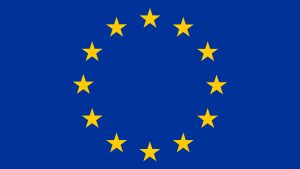Tiziana Toto and Mariano Votta from Cittadinanzattiva detail the NUDGE project’s exploration of behavioural interventions in encouraging consumers to make energy-efficient choices.
Sustainable energy behaviours are paramount for addressing our planet’s pressing environmental challenges. By embracing sustainable energy practices, individuals and communities contribute to mitigating climate change, reducing greenhouse gas emissions, and preserving natural resources.
Moreover, sustainable energy behaviours promote energy efficiency, leading to cost savings, improved energy security, and enhanced resilience to energy shocks. Beyond the environmental and economic benefits, embracing sustainable energy behaviours fosters social equity by ensuring access to clean and affordable energy for all.
However, how do we help consumers gravitate towards more sustainable energy practices?
The Horizon Europe-funded NUDGE¹ (NUDging consumers towards enerGy Efficiency through behavioural science) project sought to explore the potential of behavioural interventions, also known as behavioural nudges, at incentivising consumers to make energy-saving choices.
To understand consumer energy behaviours, the project started by conducting a comprehensive survey spanning 29 countries and available in 15 languages. This survey, completed by over 3,000 individuals, yielded invaluable insights into the complexities of energy consumption patterns, identifying six distinct consumer profiles and corresponding behavioural nudges necessary to promote sustainable energy behaviour effectively.²
Understanding energy consumer profiles
The survey revealed six primary consumer profiles, each characterised by unique attitudes, knowledge levels, and motivations regarding energy consumption:
- Environmentally conscious and well-informed energy consumers: This group demonstrates a profound concern for environmental issues and possesses a strong awareness of energy-saving strategies. They prioritise energy efficiency and are willing to make sacrifices for environmental preservation.
- Concerned but comfort-oriented energy consumers: While acknowledging the importance of energy conservation, individuals in this group may prioritise personal comfort over energy-saving measures, particularly concerning heating and cooling.
- Concerned but lacking awareness energy consumers: Despite expressing intentions to save energy, this group lacks specific knowledge about practical energy-saving methods, hindering their ability to take concrete actions.
- Materialistic energy consumers escaping personal responsibility: Despite understanding the environmental consequences of energy consumption, these individuals prioritise financial concerns over environmental responsibility. Nudges focusing on monetary savings may effectively promote energy-saving behaviours among them.
- Prone to social influence energy consumers: This segment values social approval and is influenced by societal norms. Leveraging social pressure and setting clear goals could effectively promote energy-saving behaviours among these individuals.
- Indifferent energy consumers: Individuals in this group demonstrate low intentions for energy-saving and lack environmental concern or awareness. Addressing their indifference may require multifaceted approaches to encourage behavioural changes.
From environmentally conscious to indifferent energy consumers, these six profiles embody the features that hinder energy-saving behaviours and encourage specific interventions on them.
Implementing behavioural interventions
Building upon the insights from the survey, the NUDGE project initiated field initiatives across five EU countries, targeting diverse demographics and energy contexts.
The pilots targeted consumers in Greece, Belgium, Germany, Portugal, and Croatia, in different environments (residential, energy communities, schools), belonging to different age groups (including young children), belonging to different income classes (low, medium, high), served by different energy carriers (electricity, natural gas), with the inclusion of prosumers and drivers of electric vehicles.
The pilot projects employed sequential nudging interventions, such as feedback mechanisms, awareness campaigns, gamification, goal setting, and push notifications tailored to each consumer profile. Aims of the pilots included:
- Increasing self-consumption (Germany, Croatia);
- Improving energy knowledge (Belgium);
- Optimising the charging of electric vehicles with self-generated photovoltaic energy (Germany);
- Reducing heating-related consumption (Belgium, Portugal, and Greece);
- Reducing electricity consumption (Portugal); and
- Improving indoor air quality (Portugal).
Three nudging interventions were tested in sequence in the four pilot projects, excluding the Belgian one, which provides educational nudges through courses during the school year.
Most of the pilot projects started with nudging interventions that provided feedback on participants’ energy consumption and aimed to increase their awareness. These were followed by more interactive nudges, particularly those with push notifications, just-in-time prompts, gamification, or goal setting.
While the results showed promising energy savings ranging from 0.4% to 3.5% and as high as 15% in the case of nudges aimed at electric vehicle smart charging, they highlight the importance of understanding diverse energy user profiles for effective intervention strategies.
Policy recommendations for promoting sustainable energy behaviours
Drawing from the findings of the NUDGE project, several policy recommendations – focused on consumers and consumer associations – emerge to facilitate sustainable energy behaviours.³
Enhancing environmental awareness
Continued investment in information and awareness campaigns, coordinated at both European and national levels, is essential for fostering greater environmental consciousness among citizens. Collaborative efforts involving various stakeholders, including consumer and environmental associations, can amplify the impact of these initiatives.
Improving energy knowledge
Implementing educational initiatives, particularly within school curricula, can enhance understanding of energy consumption issues from an early age, empowering individuals to adopt energy-saving behaviours. Peer education programmes and community involvement can further reinforce these efforts.
Improving consumer perceptions
Promoting awareness of the impact of specific behaviours, such as lowering thermostat temperature by two degrees to save 15%, enhances individuals’ sense of personal efficacy in energy conservation efforts.
Regulators and energy suppliers should prioritise disseminating information on accessible tools for monitoring consumption, such as simplified bills and smart meters, to empower consumers to make informed decisions about their energy usage in real-time.
Designing tailored approaches
Conflicting motivations can hinder the adoption of sustainable behaviours, as personal comfort often takes precedence over environmental concerns, such as adjusting home temperatures for energy savings.
To address this, energy service providers should engage in prior consultations to understand users’ knowledge gaps and facilitate behaviour change. Training initiatives involving multiple stakeholders are effective, particularly with adult citizens, while early educational interventions can bridge the intention-action gap, especially among younger populations.
Providing effective feedback
Habits strongly influence behaviour, often more than intentions, as they are deeply ingrained and challenging to change. Nudges are most effective when creating new behaviours rather than altering existing habits. Therefore, prioritising timely and personalised feedback is recommended, with higher frequency and content tailored to individual energy consumption patterns.
Comparisons with others’ performance can enhance effectiveness, while focusing solely on economic benefits may be counterproductive due to the perceived insignificance of savings.

Ensure access to technology
The pilots demonstrated that households with tools to monitor energy usage could consciously change their consumption habits. It’s recommended to make tools like smart meters accessible to all income groups to address energy poverty by enabling conscious energy consumption behaviour for those who need it most.
Data confidentiality
The NUDGE project survey revealed that the majority seems unwilling to share detailed energy data, i.e., on a daily to real-time basis. Concerning this aspect, the recommendation is to provide consumers with adequate information and evidence on how their data are processed in accordance with the legislation in their respective countries and to protect their right to privacy.
In conclusion, the NUDGE project underscores the complexity of altering energy consumption behaviours and emphasises the importance of tailored interventions, education, and collaboration across stakeholders. Addressing these challenges collectively is vital for promoting sustainable energy practices and achieving a lasting shift towards energy-conscious behaviours across diverse populations.
By implementing targeted strategies and fostering a culture of energy awareness, policymakers, energy service providers, and regulators can pave the way for a greener and more sustainable future.
The project “NUDging consumers towards enerGy Efficiency through behavioural science (NUDGE)” has received funding from the European Union’s Horizon 2020 research and innovation programme under Grant Agreement no. 957012. The sole responsibility for the content of this publication lies with the authors. It does not necessarily reflect the opinion of the European Union. Neither CINEA nor the European Commission are responsible for any use that may be made of the information contained therein.
This article is part of the exploitation activities carried out by Cittadinanzattiva/Active Citizenship Network in the context of the EU funded project “NUDging consumers towards enerGy Efficiency through behavioural science (NUDGE)” with the support of INNOVATION NEWS NETWORK.
For this special feature, the authors thank Jack Thomas of Innovation News Network; Bianca Ferraiolo, Head of the Representative Office to the EU at Cittadinanzattiva-Active Citizenship Network; Niklas Reinfandt from Fraunhofer ISI and co-author of the Policy Brief “NUDging consumers towards enerGy Efficiency through behavioural science (NUDGE)”; Filippos Anagnostopoulos from IEECP, co-author of the already mentioned Policy Brief & NUDGE project coordinator; For the design, the authors thank Anousheh Parsaei from IEECP.
References
- The NUDGE consortium was composed by: Athens University Of Economics And Business – Research Center (AUEB); Domx Idiotiki Kefalaiouchiki Etaireia (DOMX); Fraunhofer Gesellschaft Zur Foerderung Der Angewandten Forschung E.V. (FRHF); Institute for European Energy and Climate Policy (IEECP); Interuniversitair Micro-Electronica Centrum (IMEC); Instituto De Ciencia E Inovacao Em Engenharia Mecanica E Engenharia Industrial (INEGI); MVV Energie AG (MVV); Springs-Stof (SSTOF); Zelena Energetska Zadruga Za Usluge (ZEZ); Cittadinanzattiva (ACN). www.nudgeproject.eu
- Nudge project, “Report “Profiling of energy consumers: psychological and contextual factors of energy behaviour” Authors: S. Van Hove, M. Karaliopoulos, L. Tsolas, P. Conradie, M. Amadori, I. Koutsopoulos, K. Ponnet. D1.1-Profiling-of-energy-consumers-psychological-and-contextual-factors-of-energy-behavior-FINAL.pdf (nudgeproject.eu)
- NUDGE project “Policy brief: Policy recommendations (focused on consumers and consumer associations) NUDging consumers towards enerGy Efficiency through behavioural science (NUDGE)”. Authors: B. Ferraiolo, F. Anagnostopoulos, N. Reinfandt. www.nudgeproject.eu/wp-content/uploads/2023/12/NUDGE-policy-brief-NUDging-consumers-towards-enerGy-Efficiency-through-behavioural-science.pdf
Please note, this article will also appear in the seventeenth edition of our quarterly publication.














